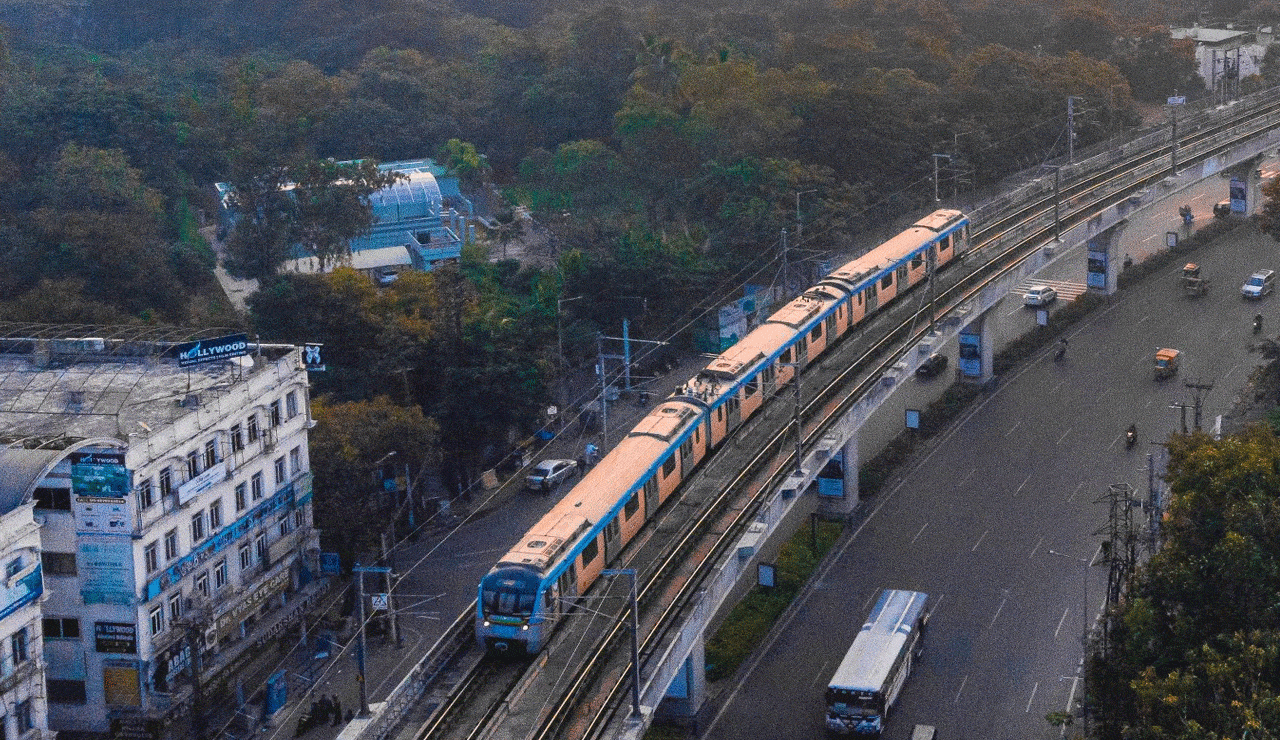Hyderabad Metro’s Future at Stake: Fare Hike or New Trains?
Hyderabad Metro Rail is facing a significant financial hurdle, with the company struggling to secure funds for new trains amidst mounting losses. The metro system, which serves over 5 lakh passengers daily across its various corridors, had earlier prepared proposals to purchase additional trains to cater to the increasing passenger traffic.

Hyderabad Metro Struggles with Financial Losses, New Trains Stalled
Hyderabad Metro Rail is facing a significant financial hurdle, with the company struggling to secure funds for new trains amidst mounting losses. The metro system, which serves over 5 lakh passengers daily across its various corridors, had earlier prepared proposals to purchase additional trains to cater to the increasing passenger traffic. However, a lack of funds has put these plans on hold, leaving the city’s metro system in a tight spot.
Table of Contents
Financial Strain and Losses Mounting
In the past 10 years, Hyderabad Metro has accumulated an estimated loss of Rs 6,500 crore. Despite an ambitious plan to expand the fleet with new trains, the severe financial strain has made it difficult for the metro authorities to invest in the required infrastructure. With daily operations running as per passenger demands, officials face the challenge of maintaining the service while trying to secure funds for the purchase of new trains.
Ticket Revenue Insufficient for Maintenance
Currently, the metro runs approximately 1,050 trips daily across its three major corridors – Nagole to Rayadurgam, LB Nagar to Miyapur, and JBS to MGBS. The fares range from Rs 10 for a minimum 2 km journey to Rs 60 for a 26 km trip. Despite the high number of passengers, the revenue generated from ticket sales is not sufficient to cover the operational costs, and the company has been operating at a loss since its inception.
Is a Fare Hike on the Horizon?
With no fare hike since 2017, officials believe an increase in ticket prices may be the only way to ensure the financial sustainability of the metro system. In cities like Delhi and Bengaluru, metro fares have been revised multiple times to keep up with the rising costs of operations. An official source indicated that fare adjustments might provide relief to the metro system and enable them to offer better amenities and maintain the service quality.
Also Read: Supreme Court Issues Strong Warning to Telangana CM
Need for Additional Trains
At present, the Hyderabad Metro operates 57 trains, with each train consisting of three coaches. To accommodate the growing number of commuters, the addition of at least 10 new trains is necessary. Each new train, costing around Rs 65 crore, would provide 30 additional coaches, significantly increasing the metro’s capacity to transport an extra 1.5 to 2 lakh passengers daily. However, securing the required funds of over Rs 650 crore for these new trains remains a challenge.
Possible Solutions for Hyderabad Metro’s Financial Crisis
The solution to this ongoing issue could involve either the state government allocating funds to purchase new trains or allowing the metro authorities to increase ticket fares to cover the costs. If the government steps in with a viability gap fund, such as Rs 200 crore from the Centre, it could provide some relief, helping to bridge the financial gap and enable the metro system to grow.
As the situation remains uncertain, Hyderabad Metro officials are awaiting a positive response from the government to address the financial challenges and ensure the continued growth of the city’s transport system.
